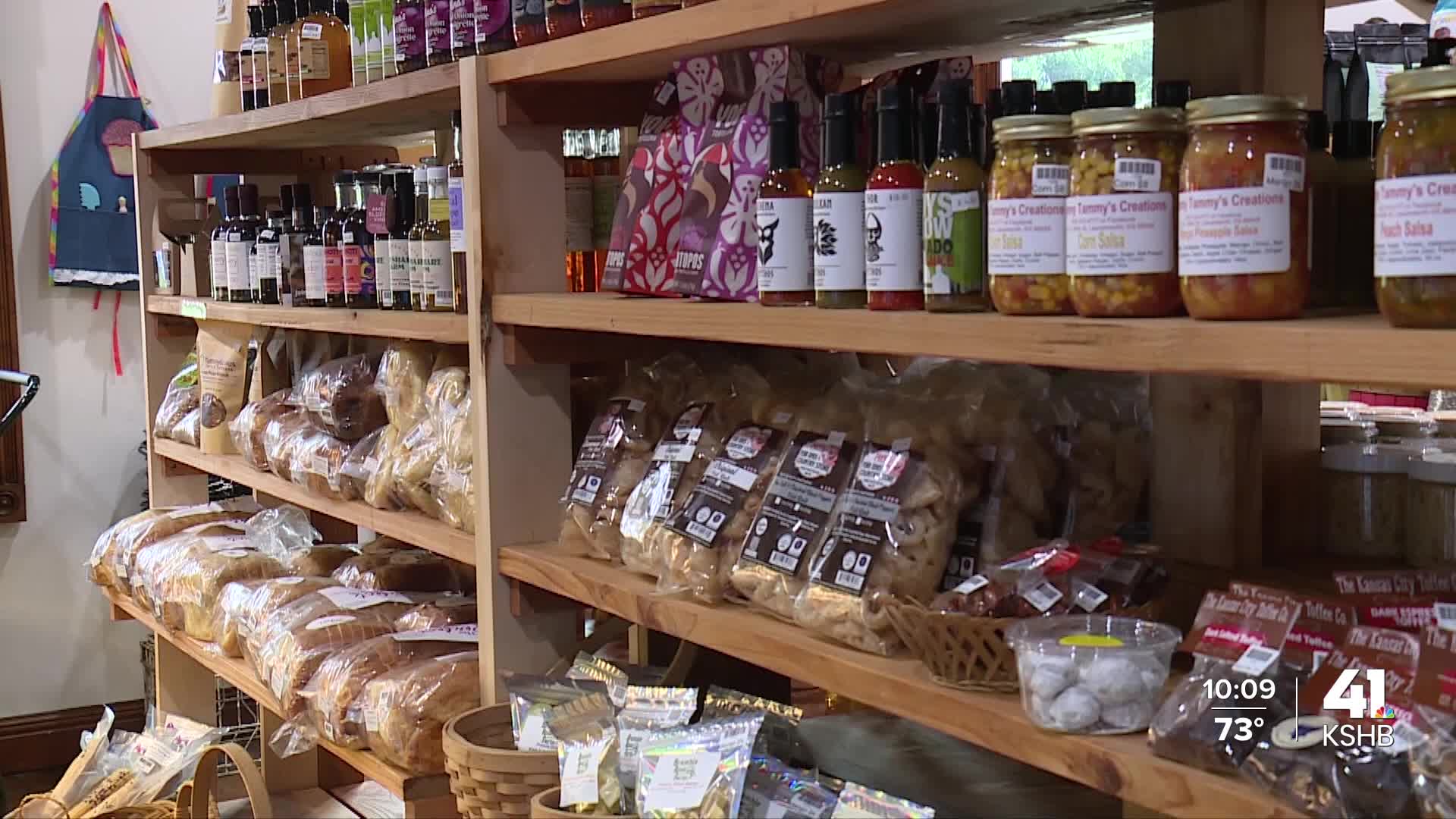KSHB 41 reporter Ryan Gamboa covers Miami County in Kansas and Cass County in Missouri. He also covers agricultural topics. Share your story idea with Ryan.
Two months ago, Brooke Franklin took her vision for greater access to fresh, local foods and started a new venture.
Franklin General Store — a farmer's market, every day.
"I wanted to have a place that people could go all week long to buy local and support local," she said.
There are no stabilizers and preservatives in any product on the shelf.
Franklin has long prioritized fueling her body with healthy food products.

With hundreds of local vendors stocking the shelves and filling the coolers, she's amplifying her voice for greater grant program opportunities.
"Since everything is local and all of our products are clean, then a lot of things have a shorter shelf life," she explained. "That's been something that's been tough to have enough space for the refrigerator and the cooler items."
It's a major input cost for Franklin General Store to grow its cooler capacity.

Jenny Doty is associated with the Heartland Regional Food Business Center and facilitates Food Systems Entrepreneurial Research Navigation with Kansas State University Extension.
In mid-July, the USDA Agriculture Marketing Service announced last week it will cut the Regional Food Business Center (RFBC) program, which offers small farm and food enterprises an opportunity to start and grow.
Doty has long helped agriculture producers find resources to grow their operations and sell their products.
"It's really challenging for our producers to get into those larger markets," she explained. "We have such a strong Kansas Agriculture community and food producers that we could actually be putting products in stores day in and day out."

On Thursday, Third Congressional District Rep. Sharice Davids (D-Kansas), alongside Kansas State University Extension-Olathe leaders and local agriculture producers, took a trip through Johnson and Miami counties.
They visited Courage Farms in Fontana, Kansas, followed by a roundtable discussion, a tour of K-State Olathe's campus kitchen and incubator, and a meeting with local entrepreneurs, concluding with a final stop at Franklin's General Store.
Davids sits on the House Agriculture Committee, and she heard from constituents to advocate for food programs she believes have proven to be successful.

"At the end of the day, all of that stuff is going to help the local economy by making sure that our small businesses can stay in business," Davids said. "It’s going to help the local economy by bringing down those prices and increasing the quality of the products that people are able to sell and buy."
USDA Secretary Brook Rollins issued a statement earlier this month:
“The Biden Administration created multiple, massive programs without any long-term way to finance them. This is not sustainable for farmers who rely on these programs, and it flies in the face of Congressional intent. USDA will honor existing commitments for over 450 grants to farmers and food businesses to ensure planning decisions on the farm can continue as normal, however stakeholders should not plan on this program continuing. Any remaining funds will be repurposed to better support American agriculture.”

According to Doty, a major issue with the operations she's worked with is product distribution.
She explained that many producers don't work with large distributors to deliver to their sales locations.
"We’re missing the distribution, we have some great collaborators like the KC Food Hub that are trying to do that work, but we need more infrastructure for local people to do this, it can’t just be large, big systems," Doty said. "It’s really challenging to break into those systems."

Opportunities for grants and other federal dollars could allow producers and Franklin to lower its expenses, which will ultimately lower consumer prices.
"Just being able to have more stores like this throughout the area, that have local vendors, so you can support that and get fresh, good quality food would be a plus," Franklin said. "Having more avenues for local food to reduce the cost by getting grant programs or things to help grow their business can be helpful to reduce the cost."
—




